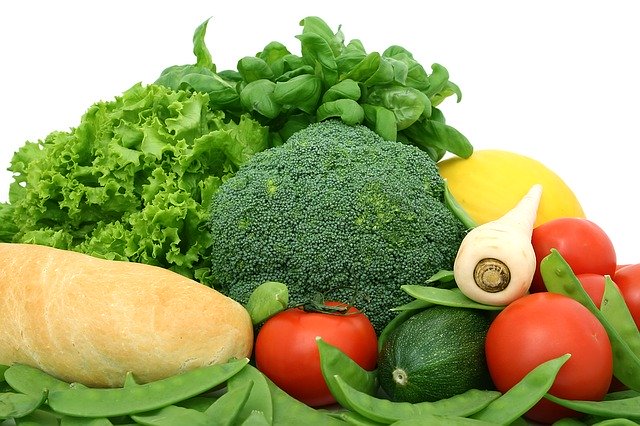Kapanlagi.com - Constipation is one of the digestive disorders that often occurs during Ramadan fasting. Constipation often occurs during fasting due to lack of fluid supply in the body, especially in the digestive system. As a result, the intestines absorb too much water. Consequently, digestion becomes irregular, leading to constipation. There are several ways to overcome constipation that often occurs during fasting.
Constipation during fasting should be addressed immediately. Because constipation can cause discomfort in the stomach. If left untreated, constipation can last for days. This can be distressing and can disrupt worship activities during the month of Ramadan. So, how to overcome constipation that often occurs during Ramadan fasting?
Here are some reviews related to overcoming constipation, summarized from various sources.
1. Meet the Body Fluid Needs

(credit: pixabay)
As mentioned earlier, dehydration is one of the main causes of constipation. This means that to overcome and prevent constipation, you can fulfill your body fluid needs. Fulfill your fluid needs by drinking water during breaking the fast and pre-dawn meal.
We are advised to drink at least 8 glasses of water every day. To meet the requirement of 8 glasses, you can follow these tips: 2 glasses during breaking the fast, 4 glasses after breaking the fast until bedtime, and 2 glasses during pre-dawn meal. By fulfilling the body fluid needs, the digestive system will become smoother and free from constipation.
2. Consume Fruits and Vegetables

(credit: pixabay)
Fruits and vegetables are recommended to be consumed during fasting. Because fruits and vegetables are natural sources of fiber that are needed by the digestive system. The fiber in fruits and vegetables is believed to be able to lift fat in food. This is what makes the digestion smoother.
Not only as a way to overcome constipation that often occurs during fasting, consuming fruits and vegetables during fasting will also keep us away from the risk of cholesterol. Examples of fruits and vegetables that are rich in fiber include bananas, papayas, kiwis, broccoli, carrots, and so on.
3. Avoid Eating Fatty Foods
The next way to deal with constipation during fasting is to avoid fatty foods. Because, as previously discussed, fat is one of the causes of difficulty in digesting food. Therefore, if consuming fiber in fruits is still not enough, you should start avoiding fatty foods, such as fried foods.
4. Drink Coffee or Tea

(credit: pixabay)
Coffee and tea are actually not highly recommended to be consumed during fasting. This is because both types of drinks contain caffeine that binds fluids. However, it turns out that in relation to how to deal with constipation that often occurs during fasting, coffee and tea can be one of the solutions to try.
Because, besides binding fluids, caffeine in coffee and tea can stimulate digestion, so it can make us feel the need to have a bowel movement. So, it's not wrong to drink coffee or tea occasionally during iftar or suhoor. But of course, if you start experiencing symptoms of needing to have a bowel movement, never postpone it again.
5. Yogurt Consumption
Besides coffee and tea, it turns out that yogurt is also recommended to be eaten when constipated. Yogurt indeed does not contain caffeine that can trigger the urge to defecate.
Yogurt contains probiotics that are very good for digestion, so constipation can be overcome. In fact, not only treating constipation, the probiotic content in yogurt can also function as an antioxidant that works to counteract free radicals.
6. Exercise

(credit: pixabay)
Exercise is one of the physical activities that is very beneficial for health. Many people consider exercise as a hobby. Unfortunately, during fasting, many people abandon this physical activity because they feel their bodies are too weak and lack energy. Even though there are many benefits that can be obtained from exercising while fasting, including overcoming constipation.
During fasting, we don't need to do heavy exercise. Just do light exercise with a short duration. To overcome constipation, it is recommended to exercise for 15-30 minutes every day, done before breaking the fast.
7. Maintaining Mood

(credit: pixabay)
In addition to physical health factors and the type of food consumed, it turns out constipation can also be caused by psychological problems. This means that stress can also cause constipation. At first glance, it may seem unrelated to mental health and the digestive system. However, it turns out there is a connection because there are nerves directly connected to the brain in digestion.
Therefore, one way to overcome constipation that often occurs during fasting is by maintaining a good mood. Because, as we know, a bad mood can be one of the triggers for stress. So, from now on, try to do more enjoyable activities that can uplift your mood during fasting, in order to avoid constipation.
Those are among the 7 ways to overcome constipation that often occurs during Ramadan fasting. You can try the above seven tips to avoid constipation, have a comfortable stomach, and have a safe fasting.
(kpl/psp)
Disclaimer: This translation from Bahasa Indonesia to English has been generated by Artificial Intelligence.

















